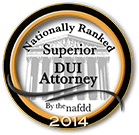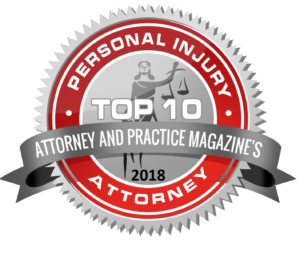When a boat accident happens, the aftermath can be overwhelming for everyone involved. In Virginia, boat accidents are a serious matter because they can lead to significant injuries, damage, or even loss of life. After such accidents, it becomes very important to gather evidence that can help in understanding what happened. One key piece of evidence in boat accident cases is the testimony of witnesses. Witnesses can play a major role in determining who is responsible and can provide important information that may not be immediately obvious.

In any legal case involving an accident, including boat accidents, witnesses help establish the facts of the case. They may have seen what led up to the accident, the accident itself, or the events that followed. In Virginia, witnesses can provide valuable support to the injured party or help explain the circumstances of the accident to the court or insurance companies. Their statements often help determine how the case is handled, and in some cases, their accounts can be the difference between winning or losing a case. At, NovaLegalGroup, P.C., we are here to guide you through the legal process and help you navigate the complexities of your case.
Why Are Witnesses Important in Boat Accident Cases?
In boat accidents, witnesses are crucial because they offer firsthand accounts of what took place. Virginia waterways can be busy, and there may be several factors contributing to an accident. Whether it is a collision between two boats, a passenger falling overboard, or a crash involving a dock or another structure, witnesses who saw the event can provide a clear picture of what happened.
Often, witnesses can describe the actions of those involved in the accident. This is important because determining who was at fault is a key element of any boat accident case. For example, if a boat operator was speeding, being reckless, or ignoring the safety rules, a witness can confirm this and help establish that the operator’s actions caused the accident.
In addition to identifying who was at fault, witnesses can also help clarify the conditions under which the accident took place. They may describe the weather, visibility, and water conditions, which can be important details in a boat accident case. In Virginia, where the weather can change quickly, witnesses may provide crucial information about how conditions changed before the accident occurred.
What Types of Witnesses Are Helpful in a Boat Accident Case?
There are different types of witnesses who can contribute valuable information in a boat accident case. Eyewitnesses who were present at the time of the accident are often the most helpful. They can include passengers on the boat, people on other nearby boats, or even individuals who were on the shore when the accident happened. These people may have seen the events unfold and can give a direct account of what took place.
Another group of witnesses may be people who came to the scene shortly after the accident. These individuals may not have seen the actual crash but can speak to what they observed afterward. For example, they may have noticed damage to the boats, the injuries sustained by the victims, or the condition of the people involved. This type of witness testimony can help confirm the severity of the accident and provide support for injury claims.
Sometimes, professional responders such as law enforcement officers, medical personnel, or Coast Guard members who arrive at the scene after the accident can also be considered witnesses. Their reports and observations are often given extra weight because they are trained to assess accidents and gather evidence. These professionals can offer details about the scene that may be important when the case goes to court.
How Witness Testimony Can Strengthen a Legal Claim
When pursuing a legal claim after a boat accident, the strength of the case often depends on the evidence that can be presented. Witness testimony is one of the most valuable forms of evidence because it provides an outside perspective on the events of the accident. In Virginia boat accident cases, witnesses can help corroborate the injured party’s version of events, making it easier to prove fault.
Witnesses can also help counter arguments made by the other party. In many boat accident cases, the person at fault may try to argue that the accident was unavoidable or that they were not responsible. A strong witness can help dispute these claims by providing a clear and unbiased account of what happened. This can be especially important when the parties involved have conflicting stories.
In addition, witness testimony can help establish the extent of the injuries suffered by the victims of the accident. In boat accidents, injuries can range from minor cuts and bruises to severe injuries that require medical attention or even hospitalization. Witnesses who saw the accident can describe the impact of the crash and what happened immediately afterward, helping to show the seriousness of the injuries.
Challenges of Relying on Witness Testimony
While witnesses can be a crucial part of boat accident cases, there are also challenges that come with relying on their testimony. One of the biggest challenges is ensuring that the witnesses’ memories are accurate. Over time, memories can fade, and details may become fuzzy. In some cases, witnesses may unintentionally change their story because they forget certain facts or confuse them with others. This is why it is important to gather witness statements as soon as possible after the accident.
Another challenge is the possibility that witnesses may not be available when needed. In Virginia, many people who witness boat accidents may not be locals. They could be tourists or visitors who were only in the area for a short time. If these witnesses leave the area and cannot be located later, their testimony might be lost.
There is also the risk that some witnesses may be biased or have a reason to favor one party over the other. For example, a witness may be a friend or family member of one of the parties involved, which could influence their account of what happened. When presenting witness testimony, it is important to ensure that the witness is credible and does not have a personal interest in the outcome of the case.
Choosing a Personal Injury Attorney Personal Injury Case TimelineRelated Videos
How Attorneys Use Witnesses in Boat Accident Cases
Attorneys handling boat accident cases in Virginia understand the importance of witnesses in building a strong case. One of the first things an attorney will do after being hired is to begin gathering evidence, including locating and interviewing witnesses. The sooner this process starts, the better the chances of getting accurate and reliable statements.
Once witnesses are identified, the attorney may take formal statements from them, either through written affidavits or recorded interviews. These statements can be used later in court or in negotiations with insurance companies. Attorneys may also prepare witnesses to testify in court if the case goes to trial. They will help the witnesses understand what to expect and may review their statements with them to ensure consistency.
During the trial, witnesses can be called to the stand to give their accounts of the accident under oath. The attorney will ask them questions to draw out the facts that support the case, while also anticipating any attempts by the opposing side to discredit the witness. Having a strong witness on the stand can significantly increase the chances of a successful outcome.
The Role of Witnesses in Insurance Claims
In addition to legal proceedings, witness testimony can also play an important role in insurance claims related to boat accidents. After an accident, victims may need to file claims with their own insurance company or the insurance company of the at-fault party. Insurance companies will often conduct their own investigation into the accident, and witness testimony can be a key part of that process.
Successful Cases
Insurance companies are primarily concerned with determining liability and assessing the extent of the damages. Witnesses who provide clear and consistent statements about what happened can help speed up the claims process and increase the likelihood of a fair settlement. On the other hand, conflicting or unreliable witness testimony may lead to delays or disputes over the claim.
In Virginia, boat accident victims may face additional challenges in dealing with insurance companies, especially if the accident involved multiple boats or took place in a busy area. Having witnesses who can provide a clear account of the events can help avoid these issues and make it easier for victims to receive the compensation they deserve.
Witnesses are a vital part of boat accident cases in Virginia. Their testimony can provide crucial evidence that helps establish fault, clarify the conditions surrounding the accident, and support injury claims. However, relying on witness testimony comes with challenges, including ensuring accuracy and availability. Working with an experienced attorney who understands how to gather and use witness testimony can make a significant difference in the outcome of a case.
If you or a loved one has been involved in a boat accident, it is important to act quickly to gather evidence and speak with witnesses who may have seen what happened. At NovaLegalGroup, P.C., we have experience handling boat accident cases and understand the importance of building a strong case with reliable evidence. Contact our firm today to discuss your case and learn how we can help you seek the compensation you deserve.










